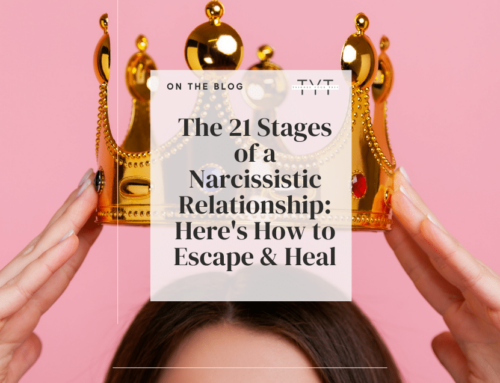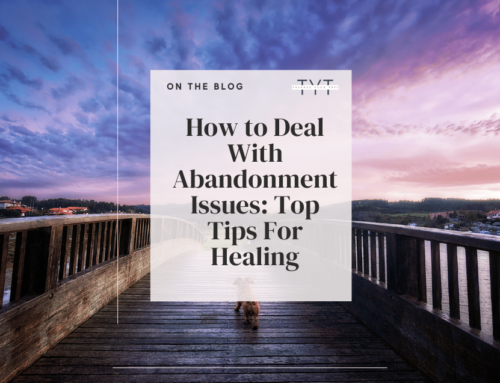After many conversations with my clients, personal experience, and research, I have decided to write about this topic as I was constantly being asked the same question. Can a narcissist change?
I genuinely feel like there are narcissists who can change, though they are viewed with a lot of negativity and bitterness nowadays. So if you’re involved with a narcissist, you might be keeping your hopes up for a healthy bond by wondering whether (and how) they can heal.
On the other hand, here’s the sad news:
Narcissists rarely change, as they tend not to recognize any issue with their problematic behavior. They constantly use a defense mechanism to save their fragile false self-images from the world’s negative evaluation. Most likely, they can’t have a realistic view of others’ emotions and are deeply angered by constructive feedback.
However, I’m here to tell you that there’s a lot more to them, and though it’s rare and complex, they can change, like everyone else. This mental health issue can usually improve with the help of a mental health professional; however, it does require patience and dedication on both sides.
In this article, we’ll delve into what narcissistic traits look like day-to-day, how best to tackle relationship issues sparked by these behaviors & finally, some methods you may use when striving toward healthier connections by trying to make narcissists face the disturbing reality.
Read more: 35 Best Karma Narcissist Quotes that Will Shake Your World
What Are The Different Types Of Narcissists?
Narcissistic personality disorder (NPD), while not as common in society, can still be a challenge for those living with it – and their partners. Learning more about the condition is vital to understanding one’s behavior or that of your significant other if they have NPD.
It is also a tough cycle to break, and I must warn you that very few people become self-aware and develop the ability to stop their narcissistic tendencies.
Regarding narcissistic personality disorder, three common types of narcissists exist in society.
Grandiose Narcissist
The first type of narcissism is characterized by entitlement, arrogance, and a lack of empathy for others. They often have an inflated sense of self-importance and believe they are superior to others.
Grandiose narcissists have low self-awareness regarding their personality trait and their mental disorder. Thus, they often indulge in hurtful behavior, putting their own needs before others most of the time.
Vulnerable Narcissist
The second type of narcissist is the vulnerable narcissist. Unlike the grandiose narcissist, the vulnerable narcissist has low self-esteem and feels insecure. They may be easily hurt by criticism and often seek validation from others. However, they are still self-absorbed and lack empathy for those around them.
Read more: 5 Weird Things Covert Narcissists Do & Ways to Protect Yourself
Malignant Narcissist
The third type of narcissist is the malignant narcissist. This type of narcissist is the most dangerous, as they exhibit both the traits of the narcissists described above, like low self-esteem alongside entitlement and lack of empathy, in addition to other destructive behaviors.
Malignant narcissists are often manipulative and exploitative and may engage in criminal behavior. It’s important to note that not all narcissists exhibit the same behaviors or have the same motivations.
However, regardless of the type of narcissist, their behavior can harm those around them. Individuals with narcissistic tendencies need to understand how their behavior is hurting others and seek help to change their own behavior if they want to form healthy bonds.
Likewise, their partners or loved ones who want to maintain a relationship should try to understand, forgive, and work toward a healthier bond. However, we’ll discuss steps you can take if there are no signs of improvement.
Read more: 12 Traits of a Narcissist To Spot Immediately & Avoid Attachment
Can a Person With Narcissistic Personality Disorder (NPD) Be Cured?
Personality disorders require immense work and special treatment, which does not happen overnight. However, saying it can be “cured” is also slightly wrong because it is a mental issue. Narcissistic personality disorder can be treated with the help of a licensed therapist, family members, and a safe relationship.
In my experience, the best way to help someone with a narcissistic personality disorder is to understand and validate their feelings by providing empathy. Narcissists will likely disarm potentially destructive conversations and heighten the trauma bond when they feel safe and secure. It’s important to remember that it may take time for positive changes to take place, so patience is critical.
Providing positive feedback and reinforcement, focusing on empathy and understanding in relationships, maintaining boundaries to protect oneself from exploitation or manipulation, engaging in regular therapy sessions, and participating in group settings that provide an understanding of narcissism can all help the person to be in the right direction.
However, don’t forget that putting your effort and energy into helping someone to heal without guaranteeing that change is possible can make you feel vulnerable and exposed. The more you engage in a narcissistic relationship trying to “save” them, the more you risk becoming their supply.
You would either be left distraught at the fact that you don’t see the narcissist in your life changing and there must be something wrong with you for sacrificing so much, or you would see yourself feeling constantly inferior and suffocated in their presence.
It also comes at the cost of jeopardizing your well-being and forming toxic relationships that would eventually force you to seek your own healing.
Read more: Empath And Narcissist Bond: 6 Reasons Narcissists Want Empathy
So, Can A Narcissist Change?
Yes, a narcissist can change and form healthy bonds but it requires a lot of patience, understanding, and commitment with a health of a licensed therapist.
The process is slow and difficult at times, but if a narcissist hits such a low point in life that is willing to self-reflect and put in the effort, it can result in positive outcomes.
However, it’s important to remember that it is never guaranteed and will take time.
It’s important to remember that you can always reach out for help if you need it. Some professionals specialize in narcissistic personality disorders and can guide how to handle the situation when you are in a relationship with a narcissist.
Read more: Narcissist Gaslighting: 19 Ways to Spot This Dangerous Abuse
What to Do Instead Of Hoping That A Narcissist Can Change
Since there is no guarantee that narcissists change, the probability is also very slim, but most importantly, it has nothing to do with you. Here’s what you can do instead of hoping they will change:
Spot All The Narcissistic Traits
The first step is to understand the signs so that you can address the issue before it becomes a significant problem. Some common traits of narcissistic personality disorders are unempathetic behavior, grandiosity, manipulation, controlling behavior, and an overall lack of boundaries.
A narcissistic partner can also be extremely difficult to create intimacy with, as many narcissists might feel threatened to let a person in their life genuinely.
Don’t Trigger Their Low Self Esteem
Once you have identified the narcissistic traits in the person, it’s important not to trigger their low self-esteem. This can be done by avoiding comments that could hurt their feelings and make them feel small or inadequate.
It’s also important to be aware of any manipulative behaviors they may display, as this could lead them to experience even more insecurity and lead to narcissistic rage.
Focus On Your Self-Care and Set Boundaries
Another great way to handle a narcissist is by setting boundaries to which both parties can adhere. This can be done by communicating your expectations upfront and ensuring your boundaries are respected, which can often be done by seeking your own therapy.
In addition, it’s essential to stay focused on your self-care. Caring for your body, health, and mind will help you remain solid and clear-headed under challenging situations. It can also provide a sense of peace and comfort when dealing with someone toxic.
Avoid developing a trauma bond
Finally, it’s also important not to engage and develop a trauma bond with the narcissist. A trauma bond is an unhealthy connection between two individuals where both partners experience emotional trauma because of their relationship.
This can be especially dangerous in cases of narcissistic abuse as the victim can become dependent on their abuser for validation and approval.
Read more: The 7 Stages of Trauma Bonding: Here’s Why You Can’t Leave
If There’s Narcissistic Abuse, Walk Away
Ultimately, if narcissistic abuse is present in the relationship, it’s essential to walk away and focus on your own well-being. Remember that you deserve to be treated with respect and love and that no one else has the right to take away your joy or self-worth.
It’s also important to remember that you don’t have to stay in a situation just because you expect the narcissist to change, and you’ll finally have the relationship you dreamed of.
The reality is that while it’s possible for them to do so, it may take years before any real progress is made, and it is entirely out of your control, so you should never depend your happiness on external factors.
Read more: Reactive Abuse & Narcissism: What Is It How To Deal With It
Can a Narcissist Be Changed By Love?
A narcissist can be changed, but not necessarily by love. Loving someone with a narcissistic personality disorder isn’t easy; it takes patience and understanding. Even when there is genuine love between two people, it may not be enough to help the narcissist overcome their condition.
Usually, what happens is that a narcissist hits a low point in life where the void becomes too big to handle. That can be caused by a person pushed away by the narcissist, though true love was behind the trauma and abuse. When a narcissist is too lonely and depressed after multiple attempts to form close relationships with those around him, he might start wondering if there’s something wrong.
Only then can a narcissist put in a lot of hard work and dedication to his mental health for any real progress to be made. Ultimately, it’s important to remember that while it’s possible for a narcissist to form healthy bonds, it can take a long time and serious work with a professional before these changes are seen or felt.
Read more: The Narcissist Prayer: How To Dive Into the Narcissistic Soul
Bottom line: Narcissists Usually Don’t Change As They Can’t See Their Own Narcissism
People with narcissistic personality disorder have difficulty recognizing their issues, as they may protect their fragile self-image from the world too much to understand why changes need to be made.
Therefore, patience, understanding, and firm boundaries are key when attempting to help someone overcome narcissistic traits. Ultimately, only through hard work can a person with a narcissistic personality disorder truly begin to heal and develop healthier relationships with those around them.
However, I must conclude with the bottom line and the simple fact that few narcissists realize their harmful behaviors because they do not experience the low-bottom state that would pinch them to seek help and start changing.
It is easy to blame the narcissist, but for them to intentionally change is much more complicated. When we understand the reasons behind that fact, we can forgive, forget and move on to someone healthy instead of chasing pavements with a toxic person with no interest in self-growth.
More on Narcissism:












